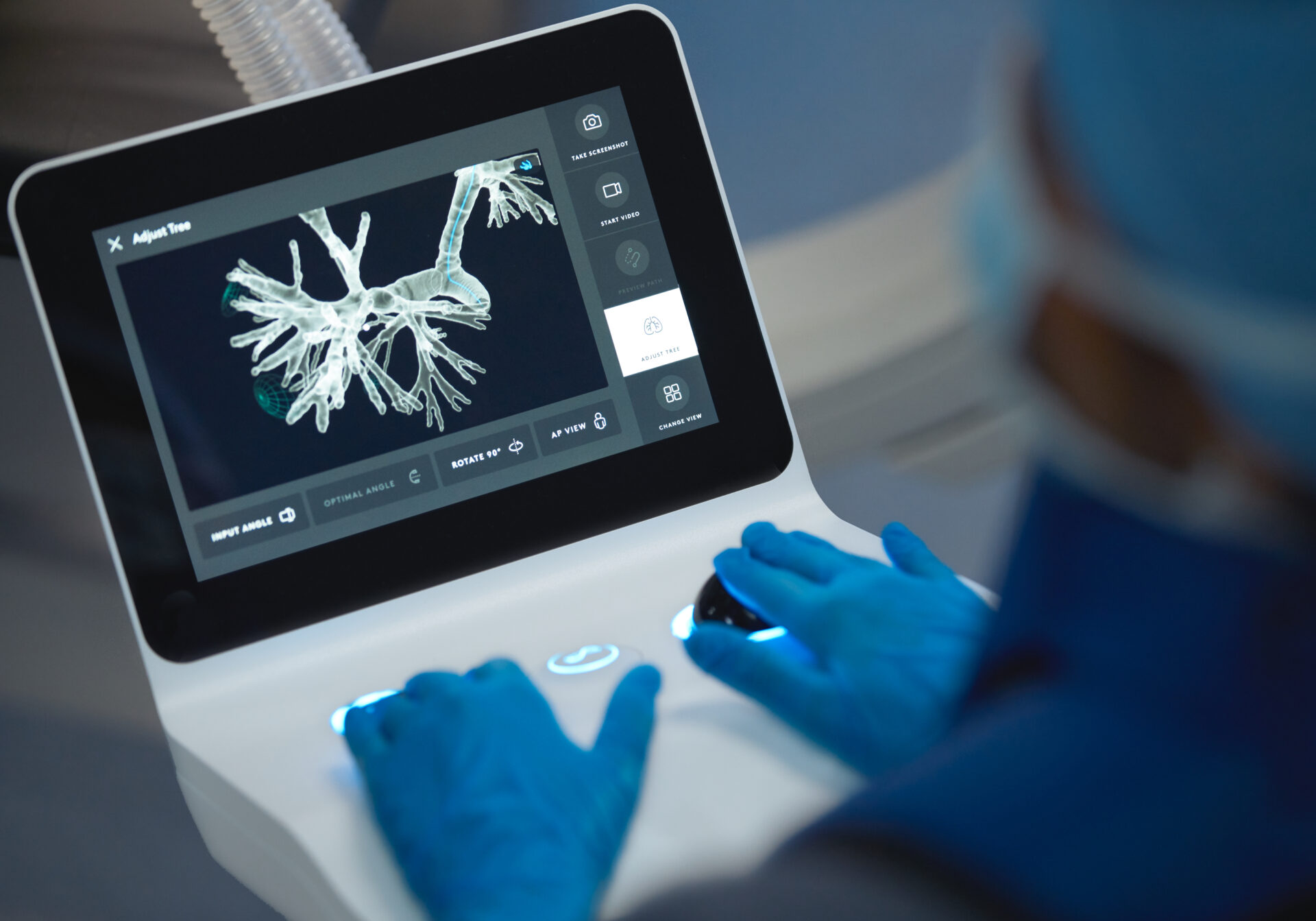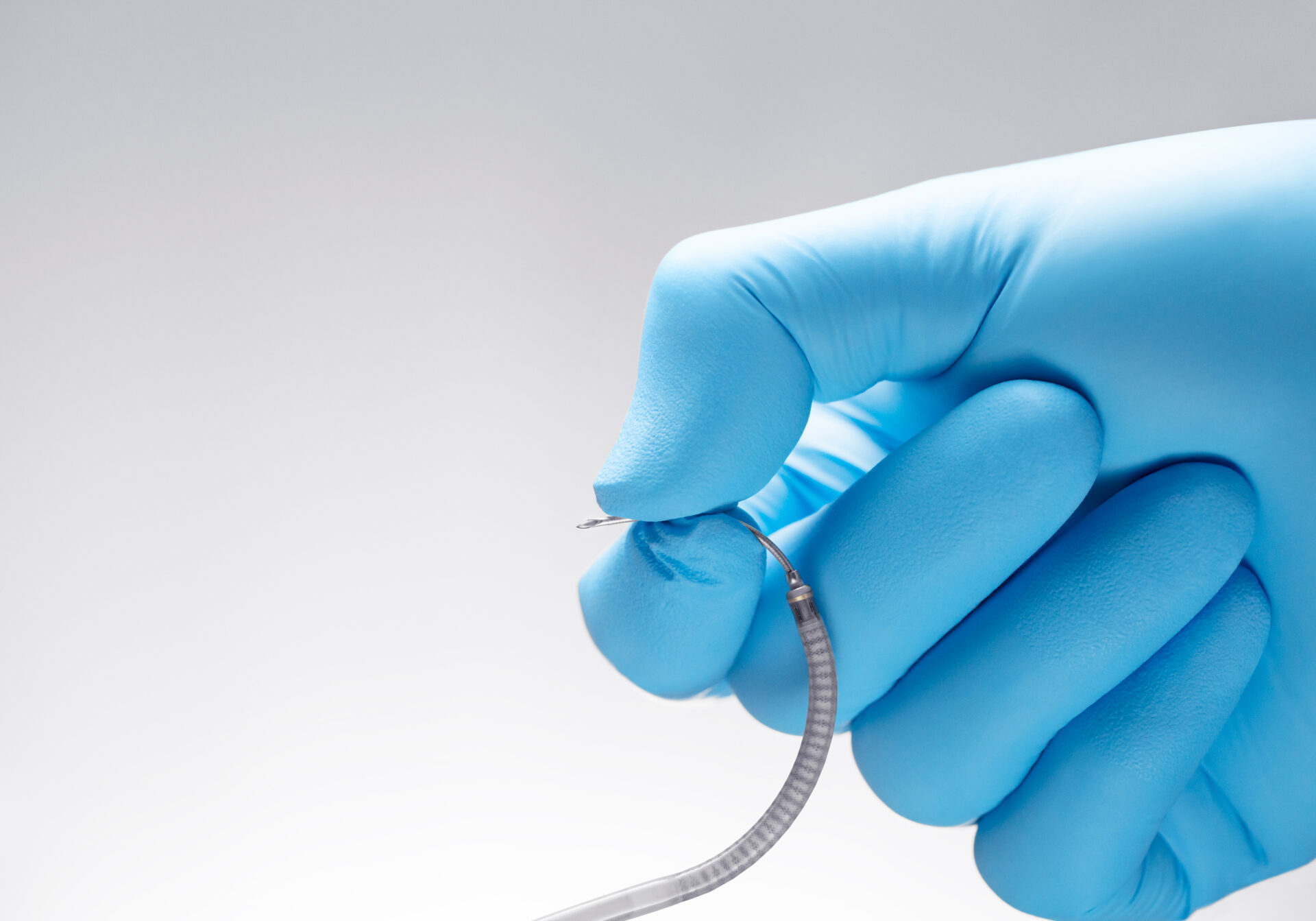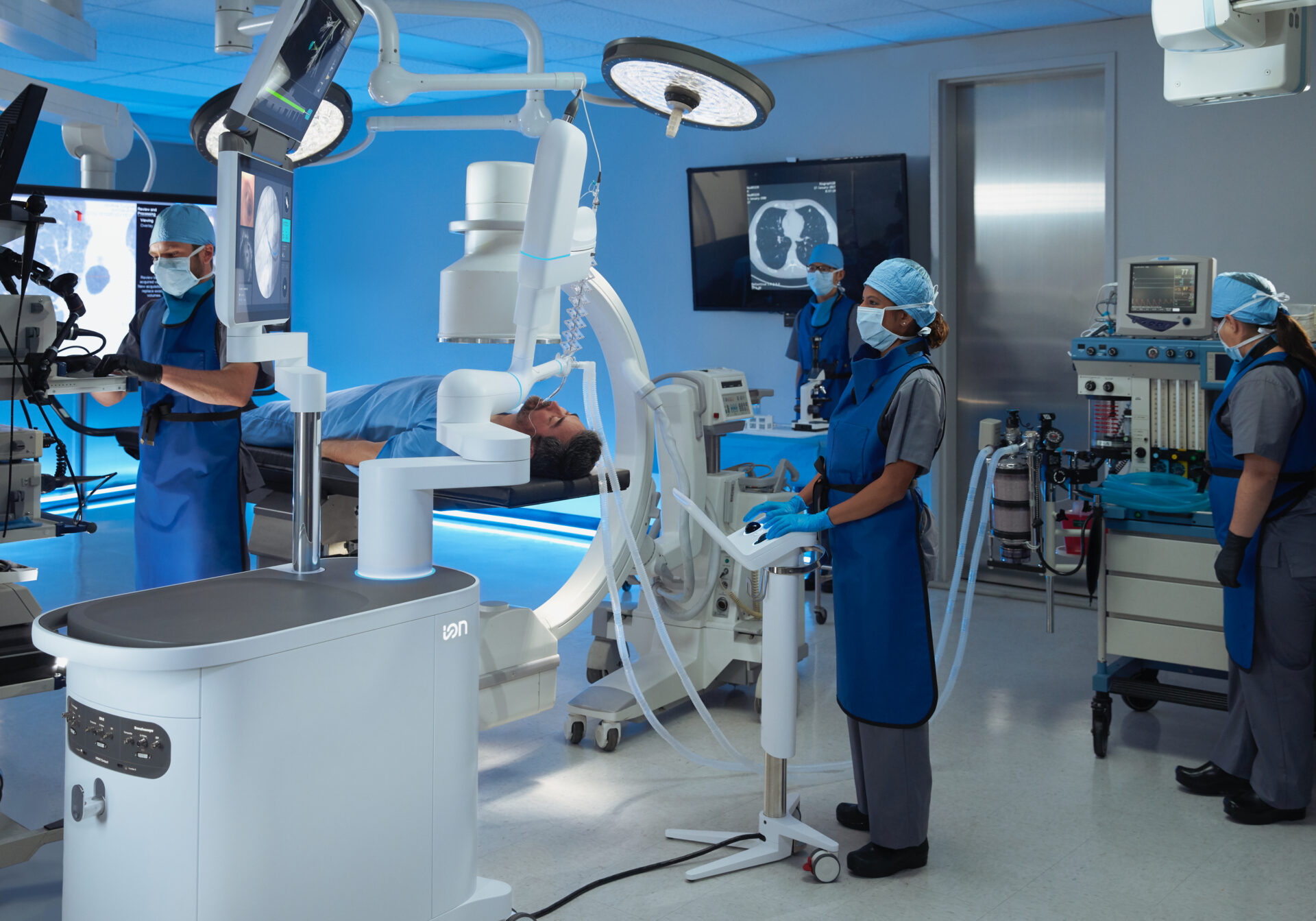Charity-Funded Robot Will Transform Lung Cancer Checks

Clinician using the Ion controller during procedure
Anxious waits for a lung cancer diagnosis and treatment could soon be cut by months thanks to a charity-funded robotic tool that lets doctors detect the disease in its earliest stages.
Wythenshawe Hospital is leading the way in early lung cancer diagnosis by becoming one of the first hospitals in Europe to start using the revolutionary "Ion Endoluminal System", which has been funded in part by our Charity, as well as Northwest Lung charities.
The development builds on Wythenshawe’s pioneering work on the Greater Manchester Lung Health Check programme where community-based mobile screening centres have diagnosed more than 600 lung cancers, mostly at early and curable stages.

Currently, diagnosing lung cancer and starting treatment can be difficult because small lung nodules are often hard to reach using traditional biopsy methods. Patients with suspected lung cancer may have to spend months of “watchful waiting” when difficult-to-reach nodules are monitored with scans but have to be allowed to grow until they are large enough to be tested.
However, the new Ion system has a thin robotic catheter that allows doctors to quickly and accurately reach even the deepest and hardest-to-reach areas of the lungs. The system has now been used to take biopsies in the first patients with suspected lung cancer.
Dr Haval Balata, Respiratory Physician and Clinical Lead for the Ion service at Manchester University NHS Foundation Trust, said that the new robot would transform how the service could treat patients as they could start treatment, or be given the all-clear, months earlier than currently may be the case.
He said: “Having this new innovative technology available for our patients to access is game changing. As we have continued to successfully expand our Lung Health Check programme, we are diagnosing lung cancers at a much earlier stage when the lesions are very small and difficult to biopsy.
“Ion allows us to safely, and accurately, sample these lesions and provide patients with the much-needed answers they seek. This, in turn, allows us to offer patients the best possible treatments sooner rather than later, when treatment is much more likely to be successful.
“I’m immensely proud of our team and the trust for being one of the first centres in Europe to offer this service to their patients. Having the ability to offer patients the latest in technological advancements that enhance their care and clinical outcomes is extremely fulfilling for the team. We all very much look forward to establishing this service for patients across the region over coming weeks and months.
“It’s also important to say how grateful we are to both the Manchester Foundation Trust Charity and Northwest Lung charities for supporting us in making this happen.”

Lung cancer is the UK’s most common cause of cancer death and people diagnosed with this disease at the earliest stage are nearly 20 times more likely to survive for five years than those whose cancer is diagnosed at a later stage. Around 48,000 people are diagnosed with lung cancer and about 35,000 people die from the disease every year in the UK.
Mark Cubbon, Chief Executive Officer of Manchester University NHS Foundation Trust, added:
“It is important that we constantly innovate and embrace new technologies to enable our clinicians to provide the best possible care to our patients. Becoming one of the first hospitals in Europe to use this system is a significant step forward to strengthen our ability to detect and treat lung cancer as early as possible.
“Our lung cancer screening teams have led the way in developing new ways of identifying patients with cancer as early as possible, which are already improving outcomes for patients and their quality of life. The recent introduction of Ion will help us to make further progress in this area.”
Stay in the loop
Let’s keep in touch! Sign up here to receive the latest news about charity events and projects, and how you can help, straight to your inbox.